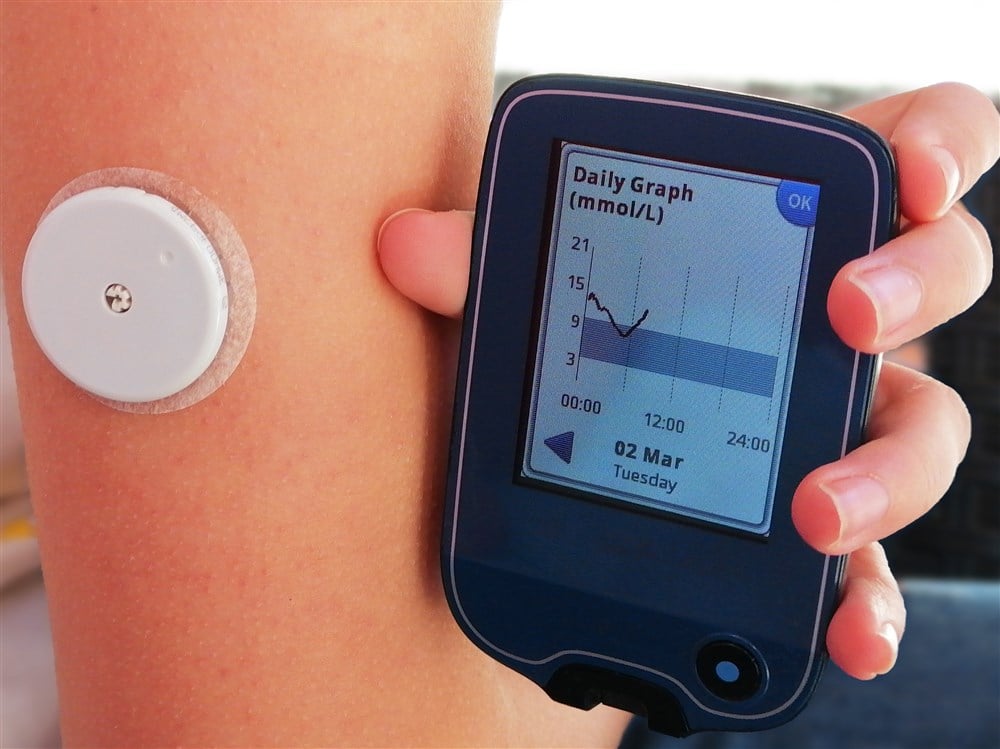
Plenty of businesses, such as PepsiCo Inc. (NYSE: PEP) and Walmart Inc. (NYSE: WMT), have been under the microscope on fears of potential earnings decreases due to growing use of products like Novo Nordisk A/S' (NYSE: NVO) Ozempic, and similar drugs made by Eli Lilly & Co. (NYSE: LLY).
While PepsiCo and Walmart have swatted away those concerns, investors are now wondering about the prospects for DexCom Inc. (NASDAQ: DXCM).
DexCom specializes in the development and manufacturing of continuous glucose monitoring systems to help diabetes patients manage blood sugar levels.
DexCom's technology offers real-time, continuous data on a person's glucose levels using a small sensor placed beneath the skin, typically on the abdomen.
This sensor sends the data to a compact, wearable receiver or a smartphone app, allowing users to monitor their blood sugar on a 24-hour basis.
Stock Rolled Over After Q2 Report
Look at the DexCom chart: The stock had been trending sideways throughout this year until rolling over into a steep and sudden correction in July. That sell-off followed its second-quarter report, which beat views by a long shot, as you can see using MarketBeat's DexCom earnings data.
In the earnings conference call, CEO Kevin Sawyer said, "Q2 was our highest revenue quarter ever and represented the largest year-over-year dollar growth in our company's history." He also said the quarterly results were "like a highlight reel."
So what happened?
Unfortunately for DexCom, investors have become concerned about the possibility of more expansive applications of obesity drugs and their impact on medical devices used to manage diabetes.
In fact, Eli Lilly's Mounjaro is approved to help treat type 2 diabetes, as is Novo Nordisk's Ozempic.
DexCom Not Seeing Impact of Weight-Loss Drugs
Fears of people using diabetes drugs to successfully treat their condition, while ditching their subscriptions to glucose monitors, are not unwarranted.
However, DexCom's sales haven't yet seen a dent from sales of Novo Nordisk's or Eli Lilly's diabetes drugs.
DexCom's revenue grew at double-digit rates in each of the past eight quarters, while earnings grew at triple-digit rates in the past three quarters.
The company has been profitable every year since 2018.
Reassuring Investors About the Pace of Sales
It's been attempting to stave off concerns about business going away due to diabetes and weight-loss drugs. In early September, in an investors' presentation, the company said it anticipated adoption of its products to continue at a rapid clip.
After that news, the stock got a modest bump, but the aftereffect didn't last; shares are down 18.06% in the past month.
Other medical device makers, such as Zimmer Biomet Holdings Inc. (NYSE: ZBH), have also seen selloffs due to worries about weight loss and diabetes drugs. Zimmer Biomet sells equipment to treat sleep apnea, a condition closely linked to obesity.
Zimmer Biomet shares are down 26.04% in the past three months.
Analysts See Upside in Price Target
MarketBeat's DexCom analyst ratings show a consensus view of "moderate-buy" with a price target of $129.59, a 61% upside.
Think about that for a minute: That's a pretty hefty increase in expected share price, indicating that despite the 30.28% year-to-date decline, Wall Street hasn't thrown in the towel on DexCom stock, despite several analysts lowering their price targets in recent weeks.
Analysts anticipate that DexCom will maintain a yearly revenue growth rate of approximately 20% through 2027. Wall Street is eyeing earnings growth of 43% this year, to $1.24 a share. Next year, that's expected to grow another 30% to $1.61 per share. If profit margins increase, earnings per share and revenue could grow at fast rates.
All of that adds up to a stock that could be perceived as a good bargain right now.
You could view DexCom's downturn as a "right-sizing," as the price-to-earnings ratio is still 70, firmly in growth stock territory. A high P/E can indicate an overvalued stock, but with DexCom's revenue and earnings projections, it may simply mean the stock is selling at low valuations relative to its potential.






